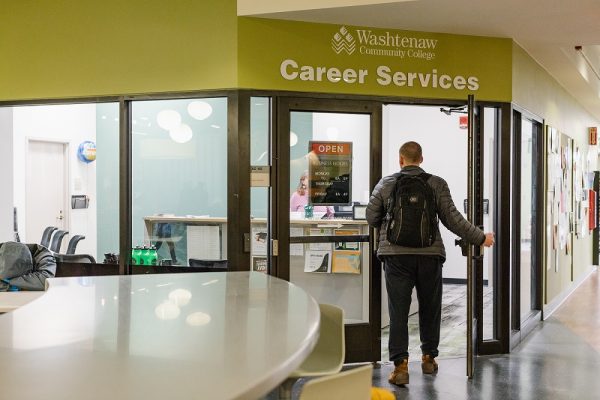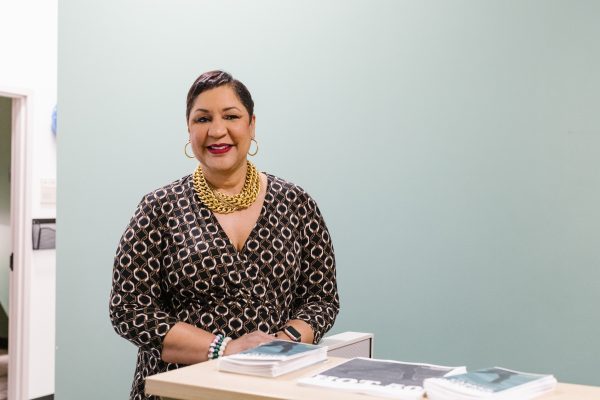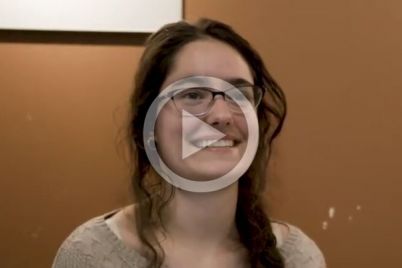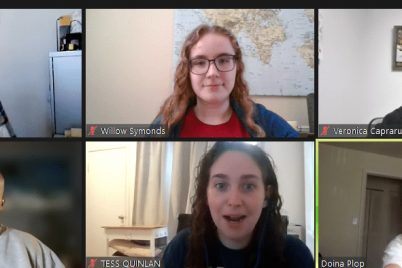
Career Services in the Student Center on campus has taken on a new name, Career Transitions. The goal is to offer their services to more broad community to keep up with the
changing job market. Sara Faraj | Washtenaw Voice
Lilly Kujawski
Editor
Formerly the Career Services department, Career Transitions at WCC has taken on a new name and opened its doors to the entire community as part of a campus-wide push keep up with the changing job market.
For students, the office and services provided will remain the same, said Cheryl Harvey, director of Career Transitions.
“Even though our name has changed, we’re still the same office,” she said. “The students are our first priority and we’re still here to service in the same way.”
Now, however, the office will also work with displaced workers in the community to help them learn new skills and undergo career changes, according to Harvey.
“We can look at the skills that they have, and we will be able to talk to them about what it is they want to do next,” said Harvey. “Then, we’ll be able to direct them to resources on campus, be it classes they can take, certifications they get.”
The idea to rename the office came from WCC President Rose Bellanca, Harvey said. Harvey added that WCC is the first to have a Career Transitions office model like this on campus.
According to Harvey, mass layoffs in companies have a lot of to do with technology’s role in industry.
“Fields are changing due to technology,” Harvey said. “A lot of these workers who are being displaced, are doing jobs now that will no longer be needed.”
“We have to look at a better way to make sure that we’re delivering programs and services to bring the adult workforce back into play,” said Michelle Mueller, vice president of economic, community and college development at WCC.
In a press release, Bellanca said that the skills required for jobs now are constantly changing
According to a report from World Economic Forum, 65 percent of children entering primary school in 2016 will end up working a job that does not yet exist.
“Technology changes so fast that you can’t count on a skill set being the same one that you’re always going to need,” said Mueller. “You have to be responsible as a person now for really taking charge of making sure that you’re going to set yourself up to continuously learn over your lifetime.”
Harvey said the college is working to keep programs up to date and support students, employers and the community.
“We’re looking, not just at the jobs people have now, but we’re looking at what the needs will be in the future, and that’s the way that we keep our economy growing and our students working,” Harvey said.
Cybersecurity majors, the Advanced Transportation Center and many career and technical education programs are part of the push to keep up with the technological advances in industries, according to Harvey.
“We are on the cutting edge of making sure we’re offering programs that will be needed,” she said. “[We’re] keying into the jobs that are available and really preparing our students to go out there and meet the needs of that workforce.”

Cheryl Harvey is the director of new Career Transitions. Sara Faraj | Washtenaw Voice
Mueller said the college’s ability to keep programs up-to-date is the reason that “we’re the ones maintaining our enrollment.” She called the faculty and programs at WCC “innovative,” and she attributes that to WCC’s partnerships with businesses.
Examples of these partnerships include having businesses influence curriculum by sitting on advisory boards at the college, recruiting on campus, taking WCC students on as interns and facilitating job-shadowing, Harvey said.
She said WCC sponsors two or three bus trips off campus a semester to visit some local employer facilities to observe.
“Employers come along and work with us in really meaningful ways,” Harvey said. “We are part of that cornerstone to the community and the businesses.”
“We play a part in making sure that they have the workforce that they need, that we’re training our students to give them the workers that they need,” she added. “To make sure that our biggest industries are thriving and that this area is thriving.”


